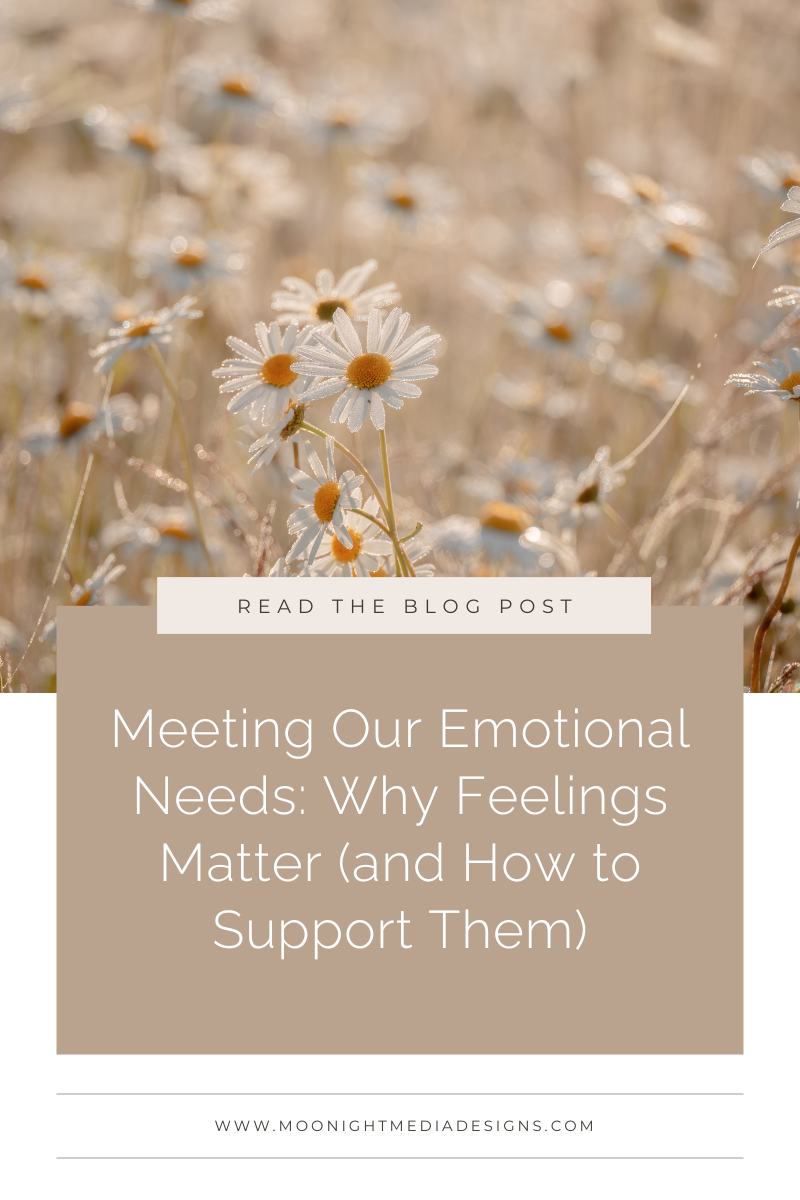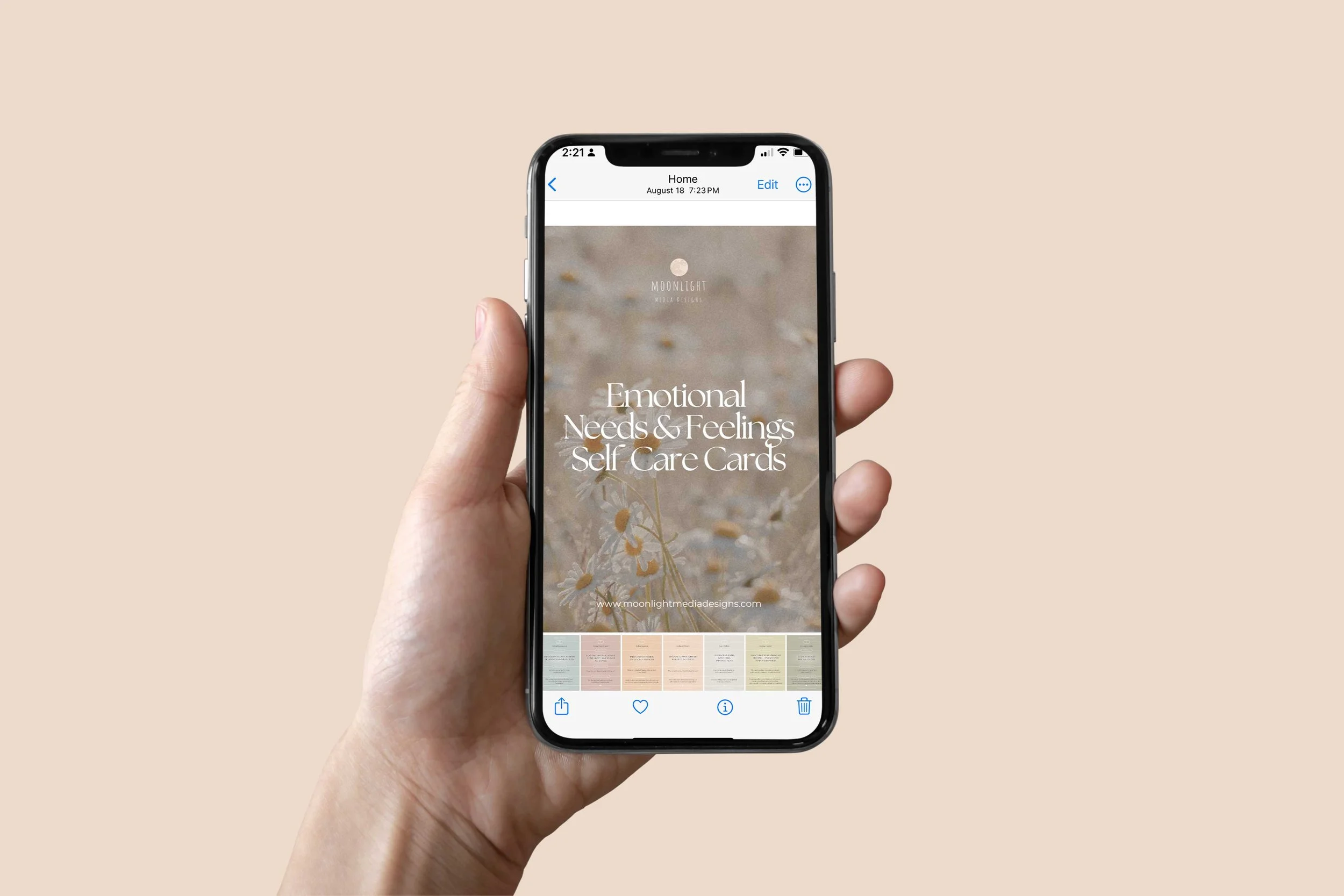Meeting Our Emotional Needs: Why Feelings Matter (and How to Support Them)
There’s a moment most of us know all too well: you’re sitting at your desk, staring at the endless to-do list, and suddenly the weight of everything feels too much. Or maybe it’s the quiet evenings where loneliness sneaks in, even if you were surrounded by people all day. Sometimes it’s the frustration bubbling up when things don’t go as planned.
Emotions are part of being human — they show up uninvited, shift our energy, and often leave us wondering what to do with them. And yet, we rarely stop to ask: What do I actually need right now?
This question became the starting point for one of my favorite tools I’ve created for mental health professionals, coaches, and anyone on their own wellness journey: the Emotional Needs & Feelings Self-Care Cards.
Why I Created These Cards
As a graphic designer working closely with therapists and wellness providers, I noticed a gap. Clients often had the language to name their feelings but not the guidance on how to respond to them in a practical, supportive way. On the other side, therapists were looking for simple, visual, and accessible tools to use in sessions — something both professional and personal.
So I built a deck that bridges both worlds: gentle design + evidence-informed self-care strategies.
What’s Inside the Deck
Each card is built around a specific emotion that tends to show up in daily life. Not just the “big” feelings, but the quieter ones too — the ones that can pull us off balance. The deck is divided into seven categories of emotional needs:
Overwhelm / Anxiety – when everything feels like too much
Sadness / Loneliness – when heaviness or isolation sets in
Anger / Frustration – when emotions are bubbling over
Low Energy / Motivation – when getting started feels impossible
Fear / Uncertainty – when the unknown feels overwhelming
Desire for Comfort / Safety – when you just need grounding
Desire for Growth / Connection – when you feel ready to expand
On each card you’ll find:
A gentle affirmation — to anchor your thoughts
A reflection question — to help you pause and notice what’s underneath
A mini action or grounding tip — so you can respond in real time
The goal? To give you (or your clients) a practical way to slow down, check in, and meet the need that’s hiding behind the feeling.
How You Can Use Them
These cards are designed to be flexible and accessible. Because they’re a digital download, you can:
Save them to your phone for quick support in the moment
Print them at home for DIY use
Use them in sessions as a conversation starter or grounding tool
Share them with clients as homework between sessions
Or keep them as a personal self-care practice — your “emotional first aid kit”
The beauty of this deck is that it’s not about “fixing” emotions. It’s about honoring them and responding with kindness.
Why They Work
When we name our feelings and connect them to a need, something shifts. Suddenly “I feel scattered” turns into “I need grounding.” “I feel pressure to do everything” becomes “I need rest and permission.” This simple reframing gives us clarity — and with clarity comes calm.
That’s why therapists love tools like affirmation cards or self-care decks: they’re not just pretty prompts, they’re evidence-based reminders that encourage emotional regulation, self-awareness, and resilience.
A Small Tool That Makes a Big Difference
Whether you’re a therapist looking for fresh session resources, a coach building client support materials, or simply someone navigating their own waves of emotions — the Emotional Needs & Feelings Self-Care Cards are designed to meet you where you are.
Because at the end of the day, our emotions don’t need to be solved. They just need to be heard.
✨ Explore the Emotional Needs & Feelings Self-Care Cards here and see how they can support your daily practice.



